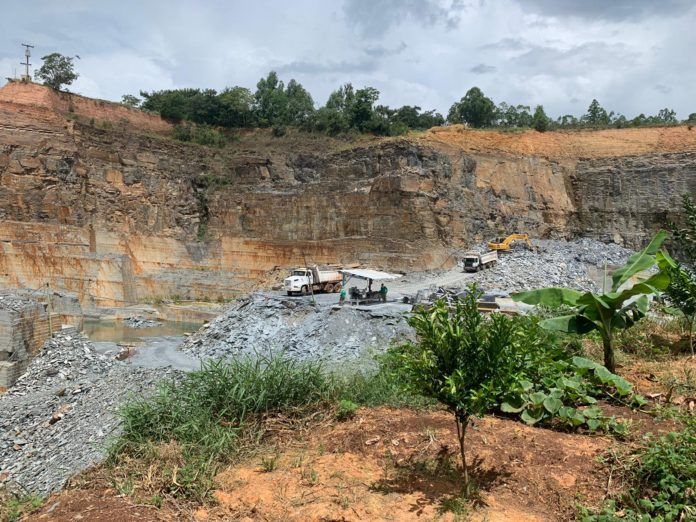Lancashire’s biggest importer of roofing slates has made emergency trips to China and Brazil to ensure a sufficient forward supply to the UK construction industry.
Senior members of EBP Building Products, a North West-based building products supplier, discovered a “perfect storm” of factors affecting the supply chain and moved quickly to ensure the continuing supply of natural roofing slates for its growing customer base.
Blackburn-based EBP is one of the UK’s largest specialist importers and distributors of roofing, drainage and building materials to builders’ merchants and the construction industry, sourcing quality and competitively priced products locally and from across the globe.
However, over the past 18 months continuity of supply for Chinese slate, in particular, has been a major issue for EBP, which has imported and sold natural roofing slates sourced from China and Brazil for more than 20 years.
More than 500 tonnes of slate has been imported from quarries to the north of Belo Horizonte, the capital of south eastern Brazil’s Minas Gerais state, alone since January this year with much of the slate being used in the housing construction boom in Manchester, Merseyside, Lancashire and Cheshire.
EBP managing director, Philip Brooke, said: “Dealing with China and Brazil for two decades has given us a deep insight into how the industries work in their respective countries, but from the back-end of last year we were becoming increasingly concerned about continuing supply of Chinese slate.
“Our top priority is to ensure the UK construction industry can forward plan for slates and roofing tiles and the only way to ensure continued supply was to talk to the quarries both in China and Brazil face-to-face.”
Philip discovered that Chinese national and regional government measures to control manufacturing and maintain competitiveness has led to the closure of some quarries.
“There has also been major growth in the use of natural slate for tableware placemats, which is more profitable and less problematic for quarries, and that’s led to a re-focusing of priorities by some in China towards that particular market,” he said.
“We also found out that major infrastructure development and new road and rail building work has slowed down the transport and shipping of slates.
“It’s just a perfect storm of factors affecting the supply chain, which was a real potential danger to UK construction.”
Joining Philip in China for an initial visit was Jess Brooke, head of sales and customer service manager at EBP. They held meetings in Beijing as well as visiting quarry sites and roofing slate manufacturers.
Philip said: “The trip was absolutely necessary in order to guarantee continuity and quality of supply for our customers, together with all-important traceability.”
Jess added: “The aim of our visit was to see for ourselves the situation, to talk to manufacturers and to ensure that our long-standing business relationship with quality Chinese roof slate makers is secure for the foreseeable future.
“From that point it was a very successful trip. We were able to talk to suppliers and to discuss our needs and requirements.”
EBP’s commercial director, Sam Brooke, is also making regular visits to China, attending meetings in both Xian and Beijing, to maintain the supply relationship.
He said: “We are committed to maintaining mutually beneficial supply relationships which enable us to deliver time and time again for our customers.
“We take a long-term approach when it comes to supply relationships, regarding trust and friendship equally as important as the material value proposition, recognising that these are the qualities that have served our company well for the past 90 years and which we will continue to maintain going forward.”
EBP Building Products offers a wide range of natural roofing slates, including products from Spain and Brazil as well as China.
A management buyout led by Philip Brooke in 2015 saw the long-established Ensor Building Products business, founded in 1929, enter a new era in addition to a change in trading name and redefined style of business at the beginning of 2017.




